Crash gambling is one of the most active forms of crypto betting. There are no cards, reels, or spinning wheels – just a rising multiplier and a single question: when to cash out.
We put together this list for players who want real crypto support (BTC, ETH, USDT, DOGE, and more) on licensed platforms that run crash games properly, with fast payouts, simple interfaces, and fair terms.
🛑 Reminder: Crash games are built to be fast and addictive. If you’re struggling to stop or chasing losses, pause and reach out to support services like GameSense or GamblingTherapy.org. This page is meant for entertainment and information, not financial advice or promises of profit.
Top Crash Gambling Sites of 2026
Here are our recommended crypto casinos offering top crash games in 2026. Some are fully crypto-native, others offer hybrid support.
- 7BitCasino: Hybrid crypto & fiat payments
- mBit Casino: 83+ crash games
- BitStarz Casino: Instant crypto withdrawals
- Hell Spin Casino: Themed crash games
- BC.Game Casino: Extensive crypto support
- IviBet: Sports betting + casino
- Bizzo Casino: 170 game providers
Best Crypto Casinos for Crash Games – Full Review
We spent hours testing crash games on each platform. Below, you’ll find our breakdown of each site, including licensing details, real user feedback, what we liked, and what could be better.
BitStarz – ⭐⭐⭐⭐⭐ 4.9/5
| Feature | Details |
|---|---|
| Languages | English, Portuguese, Russian, Japanese, Chinese |
| Licenses | Curaçao |
| Casino products | Slots, Live Dealer, Crash Games, Sports |
| Number of games | 10,000+ |
| Support languages | English, Portuguese, Russian, Japanese +24/7 |
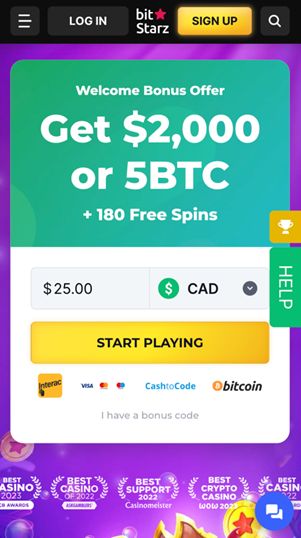
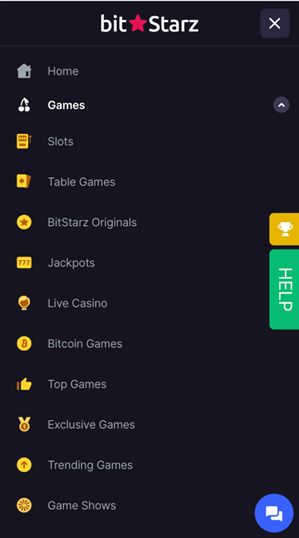
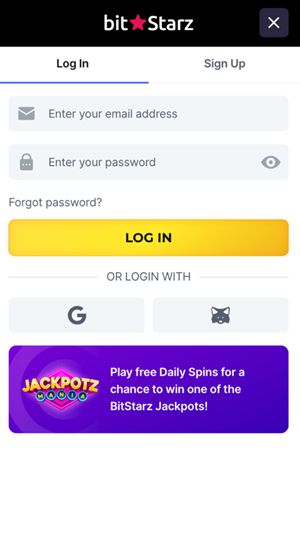
BitStarz has been crushing it since 2014, and their crash game selection is honestly impressive. Licensed in Curaçao with a rock-solid 9.8/10 safety rating, this place feels like the gold standard for players who want serious crash gaming action.
The casino features their own BitStarz Originals crash game with a wild 100,000x multiplier potential. With over 10,000 games from 87 providers, you won’t run out of options anytime soon. The RTP sits at a respectable 96%, and the €20,000 max bet means high rollers can actually play properly.
For payments, BitStarz goes all-in on crypto while still supporting traditional methods. Bitcoin withdrawals are instant (we’re talking minutes), and there are no withdrawal limits for most currencies. Pretty refreshing when you’re used to waiting days for payouts.
“I won a large amount off a small crypto deposit. The KYC process was very quick (ID, proof of address, selfie). After the KYC, I was told that the withdrawal would take a bit longer due to the significant win. Surprisingly, the withdrawal was processed extremely quickly after, and the crypto was transferred within 10 mins.”
— MrDreepy
| Pros | Cons |
| ✅BitStarz Originals crash game with 100,000x multiplier | ❌High volatility means bigger swings |
| ✅Instant crypto withdrawals with no limits | ❌40x wagering on bonuses |
| ✅11+ years of proven operation | ❌Some crypto transaction fees |
| ✅Award-winning reputation for fairness | |
| ✅Supports both crypto & traditional payments |
7BitCasino – ⭐⭐⭐⭐⭐ 4.6/5
| Feature | Details |
|---|---|
| Languages | English, German, Italian, French +4 |
| Licenses | Curaçao, Estonia |
| Casino products | Slots, Live Dealer, Crash Games, Table Games |
| Number of games | 10,000+ |
| Support languages | English, German, Italian, French +24/7 |
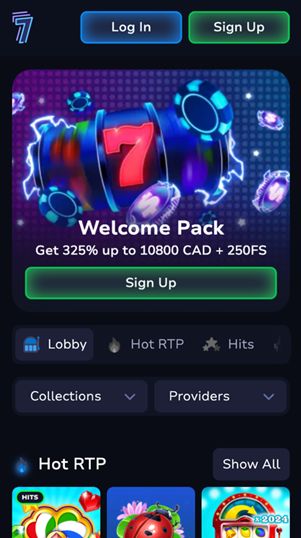
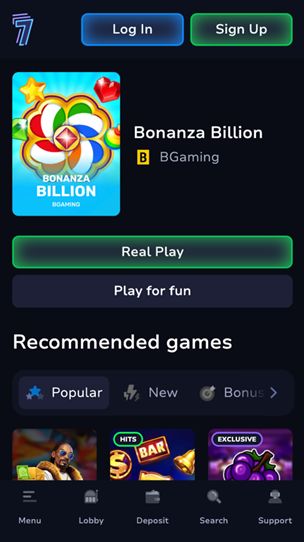
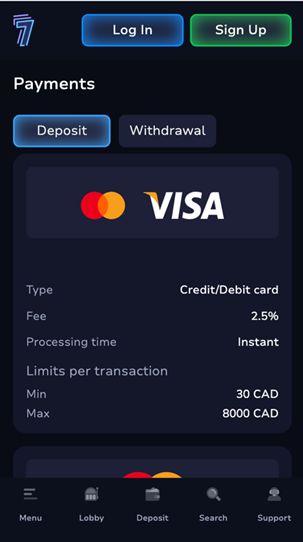
7BitCasino earned the “Fairest General T&Cs” award in 2023, which tells you everything about their approach. We’ve been testing this place extensively, and their 9.5/10 safety rating isn’t just numbers – it’s backed by solid operations since 2014.
What caught our attention is their massive 10,000+ game library from 106 providers, including all the crash favourites like Aviator and Space XY. The platform handles both crypto and fiat seamlessly, so you’re not locked into one payment method. We’ve seen withdrawals processed in hours, not days.
You’ll find a wide range of casino games at 7BitCasino that are well-organized and not too many. The interface is clean, mobile-optimized, and we haven’t experienced any of those annoying freezes during bonus rounds that plague some competitors.
“Decent game selection, crypto deposits are quick, withdrawals usually process within hours for bitcoin. Welcome bonus is solid at 5.25 BTC with fair 35x wagering.”
— Jane Patton
| Pros | Cons |
| ✅Fair terms & conditions | ❌Lower crypto limits than some competitors |
| ✅Instant VIP membership upon registration | ❌3x wagering requirement on all deposits |
| ✅Hybrid crypto/fiat payment system | ❌Some withdrawal inconsistency reported |
| ✅35x wagering (better than industry standard) | |
| ✅Proven 11-year track record |
mBit Casino – ⭐⭐⭐⭐☆ 4.3/5
| Feature | Details |
|---|---|
| Languages | English, German +2 |
| Licenses | Curaçao |
| Casino products | Slots, Live Dealer, Crash Games, Table Games |
| Number of games | 3,500+ |
| Support languages | English +24/7 |
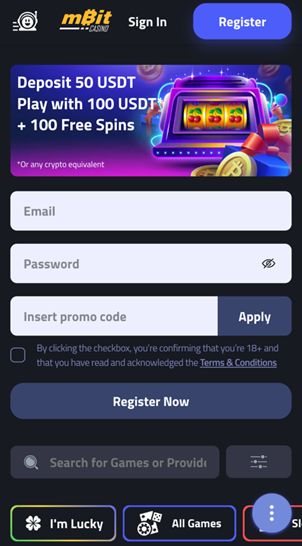
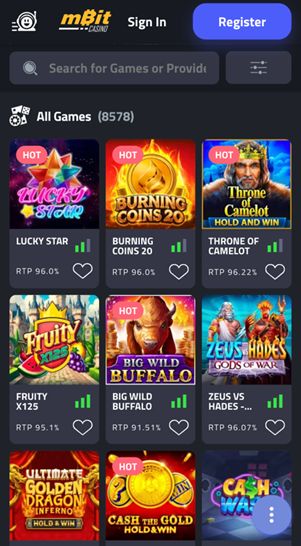
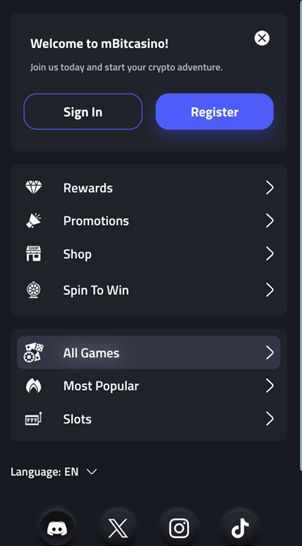
mBit Casino is where crash game enthusiasts actually want to be. Since 2014, they’ve built the biggest crash game collection we’ve seen – 83 different crash games. Their 9.3/10 safety rating reflects a crypto-focused operation that knows what it’s doing.
This is a crypto-only casino, which means no fiat complications or conversion headaches. Withdrawals hit your wallet in under 15 minutes 95% of the time, and we’re talking about limits up to 10 BTC monthly. For serious crash players, these numbers matter.
The crash game selection includes everything from classic Aviator to unique variations you won’t find elsewhere. RTPs range from 95% to 99.6%, with some Plinko variations hitting that sweet 99% mark. The social features let you watch other players’ strategies in real-time, which honestly helps with timing your own cash-outs.
“This crypto casino has really started to go downhill. Today i made a deposit of $15.48… Even after proving I was over the minimum but still lost my deposit mbit refused to make it right.”
— finkusdinkus26561 (Note: This user later received assistance and spins for the lost deposit)
| Pros | Cons |
| ✅83+ crash games (largest selection available) | ❌Crypto-only (no fiat options) |
| ✅95% of withdrawals approved under 15 minutes | ❌10x wagering requirement on deposits |
| ✅Pure crypto experience with 10 cryptocurrencies | |
| ✅RTPs up to 99.6% on some games | |
| ✅Provably fair with blockchain verification |
Bizzo Casino – ⭐⭐⭐⭐☆ 3.8/5
| Feature | Details |
|---|---|
| Languages | English, Spanish, Portuguese, German, Italian +8 |
| Licenses | Curaçao, Kahnawake |
| Casino products | Slots, Live Dealer, Crash Games, Sports |
| Number of games | 10,000+ |
| Support languages | English, Spanish, Portuguese +7 languages |
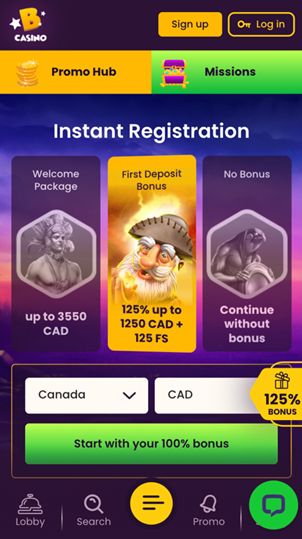
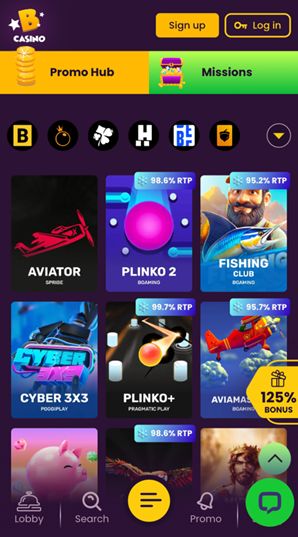

Bizzo Casino brings something interesting to the table with their massive 170 game provider network – that’s more variety than most places can offer. Since launching in 2021, they’ve earned trust among players who appreciate having endless gaming options, including crash games from providers like Spribe and BGaming.
Players consistently praise the fast withdrawal times, with many reporting payouts within an hour. The mobile app feels polished, and their 30-level VIP program offers genuine progression for regular players. Monthly withdrawal limits of €50,000 give serious players room to breathe.
The games feel fair, RTPs seem accurate, and the crash game selection covers all the popular titles plus some unique variations. The customer support gets positive mentions for being helpful and responsive, which matters when you’re dealing with fast-paced crash gaming.
“I feel like I finally found a trustworthy online casino. Deposits and withdrawals are smooth, the bonus offers are decent, and the games are varied and fair. Only thing is, live chat can sometimes be a little slow during busy hours – but they always help in the end.”
— Dev4M
| Pros | Cons |
| ✅170 game providers (massive selection) | ❌Limited crypto variety compared to specialists |
| ✅Fast withdrawal times reported by users | ❌Live chat can be slow during peak hours |
| ✅Mobile app with solid functionality | ❌Some geographic restrictions apply |
| ✅30-level VIP program with real rewards | ❌KYC verification can take a few days |
| ✅Dual licensing for regulatory coverage |
IviBet – ⭐⭐⭐⭐☆ 3.7/5
| Feature | Details |
|---|---|
| Languages | English, Spanish, Portuguese, German, Italian +9 |
| Licenses | Curaçao, Estonia, Kahnawake |
| Casino products | Slots, Live Dealer, Crash Games, Sports Betting |
| Number of games | 5,000+ |
| Support languages | English, Spanish, Portuguese +6 languages |

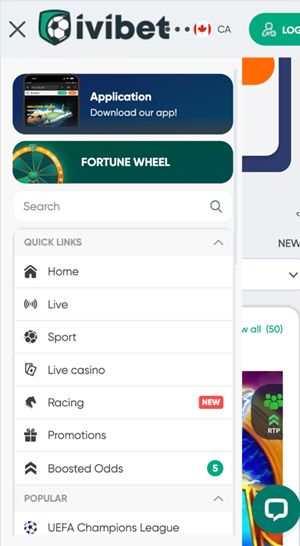
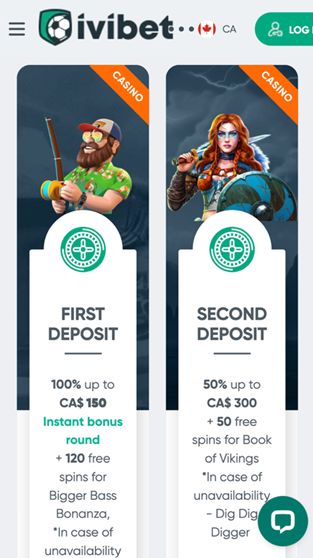
IviBet offers an interesting approach as a hybrid sportsbook and casino platform. Launched in 2022 with triple licensing from Curaçao, Estonia, and Kahnawake, they’ve positioned themselves as a one-stop destination for both sports betting and casino gaming, including crash games like Aviator.
Players who enjoy both sports and casino action seem to appreciate having everything under one roof. The platform covers major sports from soccer to basketball, while the casino section includes crash games and a solid slot selection. The €50,000 monthly withdrawal limits provide decent flexibility for bigger players.
User feedback highlights the fast KYC process and helpful customer support. Players mention that when everything goes smoothly, the experience is quite positive. The platform supports multiple languages and currencies, making it accessible for international players, including Canadians.
“Overall, an absolutely positive experience, and that’s coming from a player losing a lot there. They DO accept player from Hungary, KYC is fast, and you can complete KYC before withdrawal, Support is super-fast, helpful and knowledgeable, huge selection of slots and sports.”
— zoltankovacs
| Pros | Cons |
| ✅Sports betting & casino combination | ❌Some users report document request issues |
| ✅Triple licensing for regulatory coverage | ❌Primary focus on sports betting |
| ✅Fast KYC & verification process | ❌Limited operational track record |
| ✅Helpful customer support when contacted | |
| ✅Accepts players from various countries |
BC.Game – ⭐⭐⭐⭐☆ 3.6/5
| Feature | Details |
|---|---|
| Languages | English, Spanish, Portuguese, Russian, Japanese +20 |
| Licenses | Comoros (AOFA) |
| Casino products | Slots, Live Dealer, Crash Games, Sports |
| Number of games | 10,000+ |
| Support languages | English, Spanish, Portuguese +15 languages |
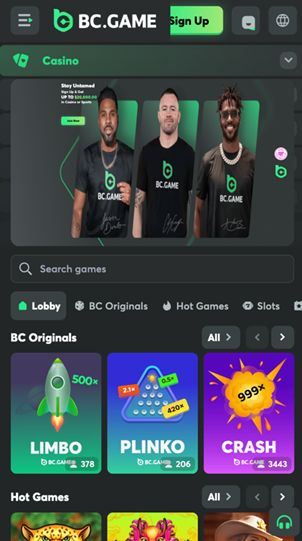


BC.Game has built quite a following since 2017, particularly among crypto enthusiasts who appreciate their extensive crypto support. With 97 payment methods and their own BC Token, they’ve become a go-to crypto site with a strong lineup of crash games.
The crash game selection is really impressive – their own Crash game shows high activity levels, and they offer popular variants like Limbo, Plinko, and Fast Crash. The platform feels modern, and the mobile experience is well-optimized for crash gaming.
What players really appreciate is the withdrawal speed. Many report getting their crypto payouts fast, and the platform supports an extensive range of cryptocurrencies beyond just Bitcoin.
“BC game is one of my go-to casinos. I don’t play that often, but if I feel like it, I choose it. There I can always find the latest releases, choose any token to make a deposit, and withdraw money quickly if I’m lucky.”
— lexxroad
| Pros | Cons |
| ✅Extensive crash game selection with high activity | ❌Lower monthly withdrawal limits (€5,000) |
| ✅97 payment methods, including many cryptocurrencies | ❌Some users report deposit processing delays |
| ✅Quick crypto withdrawals | ❌Comoros licensing (less familiar jurisdiction) |
| ✅Modern platform with mobile optimization | ❌Limited fiat payment options |
| ✅Own cryptocurrency (BC Token) integration |
HellSpin – ⭐⭐⭐☆☆ 3.5/5
| Feature | Details |
|---|---|
| Languages | English, Spanish, Portuguese, German, Italian +9 |
| Licenses | Estonia, Kahnawake |
| Casino products | Slots, Live Dealer, Crash Games, Fast Games |
| Number of games | 5,000+ |
| Support languages | English, Spanish, Portuguese +7 languages |
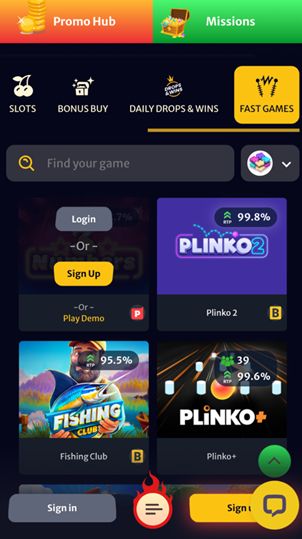


Launched in 2022 with dual licensing from Estonia and Kahnawake, HellSpin has built a dedicated following among players who appreciate their crash game selection and fast-paced gaming environment. The platform includes popular crash games like Aviator, Plinko XY with 99% RTP, and Big Bass Crash for those who enjoy themed variations.
Players who can access the platform often praise the withdrawal speeds, with some reporting payouts hitting their accounts within hours. The customer support gets positive mentions for being helpful when contacted, and the platform offers a decent variety of payment methods, including crypto options.
The mobile experience has been optimized for crash gaming, and the platform’s “hellish” theme adds some personality to the gaming experience. For players in eligible markets, the crash game selection covers most of the popular titles that serious crash players expect.
“This is the far best casino I played on recently. You have good possibility to win something big here. I made card withdrawal…within 1hour my account was fully verified and withdrawal already seen on my bank account…just incredible.”
— ROCCKODON86
| Pros | Cons |
| ✅Fast verification and withdrawal process | ❌Limited geographic availability |
| ✅Good crash game selection including themed variants | ❌Newer operation (since 2022) |
| ✅Mobile-optimized platform | |
| ✅Dual licensing coverage | |
| ✅Responsive customer support |
What Is Crash Gambling?
Crash gambling is a fast-paced, crypto-first game where players place bets before a graph line starts rising. As the multiplier increases, the tension builds. You can cash out at any moment, but if you wait too long and the line “crashes,” you lose your stake.
Players say it’s like day trading meets arcade gaming. There’s no storyline, no characters – just your reflexes, your instincts, and a rising multiplier that could stop at 1.01x or climb to 150x (or beyond).
What makes crash gambling particularly appealing to crypto users is its minimal learning curve, transparent algorithms, and rapid rounds. Most games are built on a “provably fair” system – a blockchain-backed method where players can verify that the result wasn’t rigged. You’ll often see a fair hash system displayed right below the multiplier.
🧠 Reddit user “college-dating-throw” compared it to the central limit theorem, noting: “Over time, the expected value always favors the house. But in short bursts? Anything can happen.”
How Do Crash Games Work?
Crash games use a few core mechanics:
- The game starts at 1.00x.
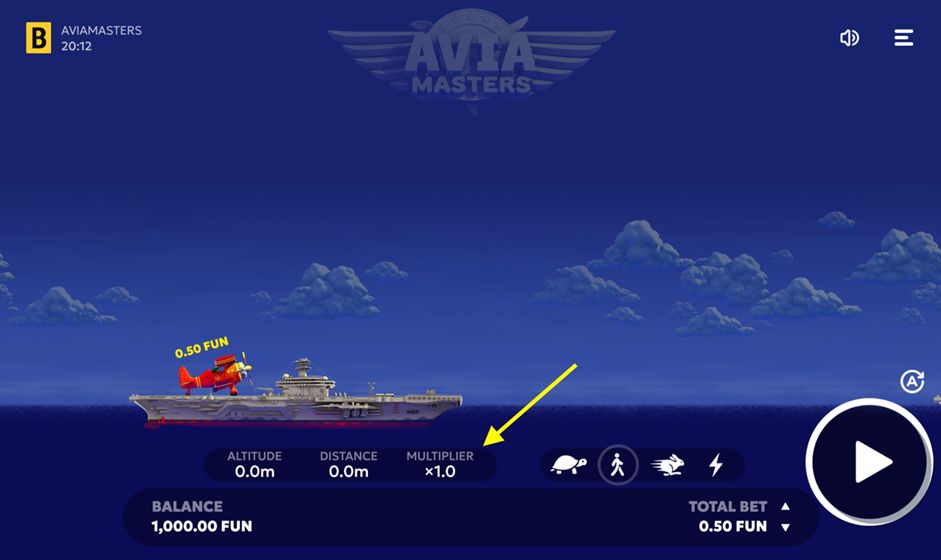
- The multiplier rises continuously over time.

- A random crash point (generated securely using a seed hash) determines when the game ends.
- Players must click “Cash Out” before the crash – otherwise, their bet is lost.
- Some games offer Auto Cash Out, letting players exit at a preset multiplier.
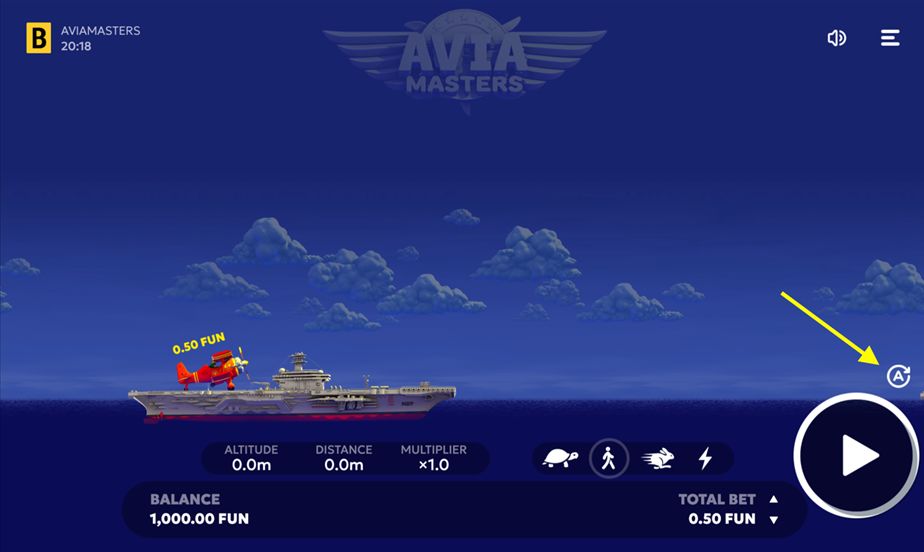
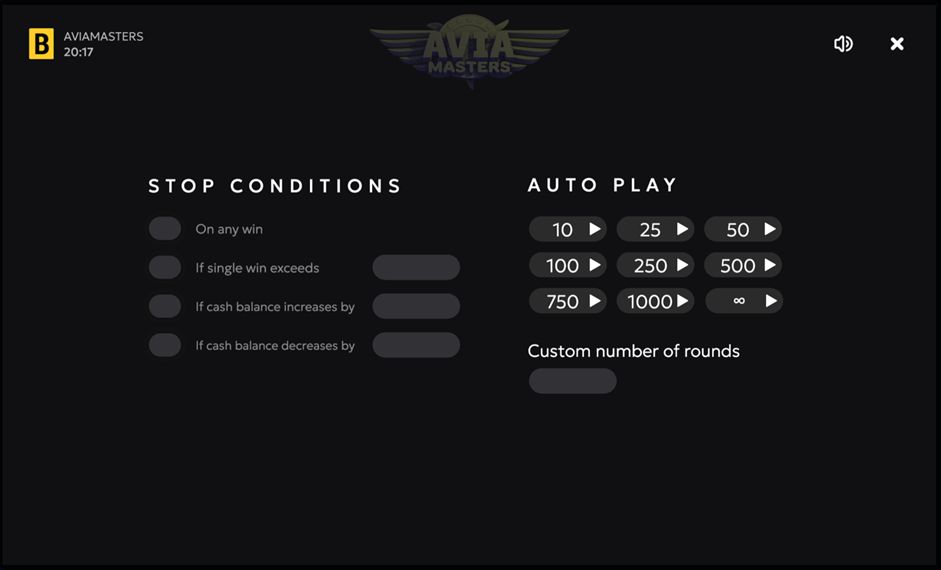
Are Crypto Crash Gambling Sites Legal?
Crash gambling has moved from a niche curiosity to a globally searched activity. But is it legal to play with crypto on these sites? The answer varies widely by country.
Worldwide, crash gambling sites exist mostly in a regulatory grey zone. While the game itself isn’t banned in most countries, using cryptocurrency on gambling platforms is either unregulated or selectively restricted depending on local laws.
Some key facts:
- Most crash sites operate offshore, licensed under authorities like Curaçao or Malta.
- Crypto is legal in many countries, but gambling with crypto is often not explicitly regulated.
- Players in countries like Germany, India, Brazil, and South Africa commonly use VPNs to access crypto crash sites.
- Game availability, payment options, and promotions differ widely due to regional compliance measures.
- Crash games aren’t always legally defined as “gambling” under older laws.
Canada vs USA: What’s Allowed, What’s Risky, What Works
Interest in crash gambling continues to rise globally. According to Ahrefs data, the term “crash gambling” now has a global monthly search volume of 6.9K, led by:
- 🇺🇸 United States: 3.1K
- 🇦🇺 Australia: 400
- 🇨🇦 Canada: 350
- 🇬🇧 United Kingdom: 350
Google Trends supports this uptick. In the U.S., search interest in “crash gambling” surged repeatedly between July 2024 and July 2026, with notable peaks in New York, Maryland, and Oregon. In Canada, search volume remained low for months but spiked sharply in summer 2026, especially in British Columbia, Alberta, and Ontario, coinciding with increased exposure to crypto casinos like Stake and BC.Game.
Where It’s Safer to Play
| Aspect | 🇨🇦 Canada | 🇺🇸 United States |
| Legal Status | No federal ban on crypto gambling | State-dependent legality; no federal allowance |
| Regulation | Provincial control; Ontario has legal private iGaming | Only a few states allow online gambling (e.g., NJ, DE, PA) |
| Crypto Gambling Access | Offshore platforms widely used and tolerated | Mostly restricted; VPN use is common but risky |
| Crypto Use | Legal to own, trade, and use – not legal tender | Legal to hold, but often blocked in gambling context |
| Payment Restrictions | Generally crypto-friendly payment policies | Frequent payment processor blocks for crypto |
| Support Resources | GameSense, Responsible Gambling Council (RGC), ConnexOntario | National Council on Problem Gambling (NCPG), Gamblers Anonymous, GamblingTherapy |
Bitcoin Crash Games: Our Favourite Picks in 2026
Crash games are no longer a one-size-fits-all experience. The best titles now offer unique twists, art styles, and cashout strategies. Here are the most trusted and frequently played games we tested in 2026:
| Game | Provider | RTP | Theme | Unique Feature |
| Aviator | Spribe | 97% | Social | Live chat + leaderboard |
| JetX | SmartSoft | 96% | Arcade | Dual-bet option |
| Crash X | Turbo Games | 97% | Space | Adjustable risk |
| Spaceman | Pragmatic Play | 95.5% | Cartoon | Partial auto-cashout |
| Crash 2.0 | BC Originals | 96% | Sci-fi | Speed-run visuals + live tracker |
How to Start Playing Crash Games
Crash gambling is simple on the surface, but the adrenaline-fueled pace can catch new players off guard. Before you jump in, take a few minutes to prepare. Choosing the right site, securing your funds, and setting boundaries can make the difference between an enjoyable experience and one that quickly spirals. Below are the five core steps every player should follow before their first crash bet:
1. Choose a licensed, reputable site
Pick from verified platforms like the ones listed above. Look for a valid gaming license (e.g., Curaçao, iGaming Ontario), provably fair crash games, and clear terms of service. Avoid anonymous or unregulated casinos, especially those without a support team or bonus transparency.
2. Load your crypto wallet securely
Bitcoin (BTC) and Ethereum (ETH) are accepted almost everywhere, but some sites also support USDT, DOGE, and LTC. Use a non-custodial wallet (e.g., MetaMask, Trust Wallet, or hardware wallets) to retain control of your private keys. Always double-check addresses before transferring funds – crypto transactions are irreversible.
3. Make a modest first deposit
Start small. A deposit of $20–$50 in crypto is enough to test the platform, explore its features, and get familiar with crash mechanics. Many crash casinos offer welcome bonuses, but check the wagering requirements, especially whether crash bets count toward bonus playthrough.
4. Try demo mode or set an auto-cashout
If available, start with free mode to watch how crash patterns develop. Once you switch to real bets, a conservative auto-cashout between 1.5x and 2.0x is recommended. This helps reduce risk and avoid emotional chasing, especially in your first few sessions. Some players run two simultaneous bets – one with auto-cash and another manual – to test both strategies.
5. Use stop-loss rules & play limits
Set a hard loss limit before each session and stick to it. For example, if your bankroll is $50, consider walking away if you drop to $30. Never try to “win it back” after a crash. Crash gambling thrives on quick decisions, but smart players build routines: pause after big swings, log out after 30–45 minutes, and use tools like GameSense, GamTalk, or the casino’s built-in limit settings when needed.
Pros of Playing Crash Games with Crypto
There’s a reason crash gambling sites that accept Bitcoin, Ethereum, and other cryptocurrencies are gaining traction in 2026. It’s not just about novelty. It’s about real, practical benefits that traditional fiat casinos can’t match.
- ✅ Faster Withdrawals: Crypto payouts often arrive within minutes, not hours or days like with banks.
- ✅ Lower Fees: No middlemen or currency conversion costs.
- ✅ Anonymity & Privacy: Most crypto casinos don’t require full ID unless withdrawing large amounts.
- ✅ Borderless Access: Crypto lets you play without worrying about country restrictions (VPN-friendly).
- ✅ Better Bonuses: BTC users often get larger deposit match offers and cashback deals.
- ✅ Blockchain Transparency: Many games are provably fair – a level of trust traditional games can’t replicate.
Cons of Crypto Crash Casinos
As convenient as crypto crash gambling sounds, it’s not without risks. Some are tied to the currency itself. Others stem from casino policies and player behaviour.
- ❌ Volatility: Your BTC winnings today could be worth 15% less (or more) tomorrow.
- ❌ Irreversible Mistakes: Sent to the wrong wallet address? It’s gone. No chargebacks.
- ❌ KYC Surprise: Some “no-KYC” sites suddenly request ID on withdrawal – always read the fine print.
- ❌ Lack of Regulation: Many offshore casinos are licensed in weak jurisdictions or not at all.
- ❌ High Wagering Requirements: Bonus terms often demand 40–60x playthrough – check first.
- ❌ Addiction Risk: Crash games are fast, emotional, and sometimes ruthless. Don’t play angry.
How We Review the Best Crash Gambling Sites
Every casino on our list was manually tested by our editorial team and trusted contributors. We funded real accounts, placed real bets, and evaluated each site based on the following weighted criteria:
Hover over bars to see detailed descriptions

Licensing & KYC Clarity
The first red flag for any crypto casino? No license or shady verification policies. We only included platforms with active, traceable gambling licenses and clear Know Your Customer (KYC) policies. While many crypto-first sites let you deposit and play anonymously, we checked how transparent they are about ID checks during withdrawals. Vague or last-minute KYC requests led to score deductions.

Game Fairness
We only trust casinos that offer provably fair crash games – meaning every round’s outcome can be independently verified using seed hash systems. RTP (Return to Player) percentages were also reviewed, especially for popular titles like Aviator and JetX. Sites with opaque or missing fairness info didn’t make the list.

Payment Methods & Speed
We tested deposits and withdrawals with BTC, ETH, DOGE, and USDT, using both browser wallets and hardware wallets. Speed and transparency mattered most – the best sites processed crypto withdrawals in under 30 minutes, fee-free. We also checked if platforms support secure non-custodial wallets like MetaMask or Ledger.

Bonuses & Terms
A big bonus means nothing if the wagering requirements are impossible. We broke down welcome offers, reload bonuses, and free crash rounds and checked for transparency around rollover conditions. Clear terms, low wagering (under 40x), and no hidden restrictions earned higher marks.

Mobile Experience
Crash is made for mobile. We tested on iOS and Android, playing via mobile browsers and apps (if available). We looked for clean layouts, low input lag, and no performance drop compared to desktop. Games that stuttered or froze during fast-paced play lost points.

Real Player Feedback
You can tell a lot from what real players are saying. We dug into Reddit threads, Trustpilot reviews, Casino Guru reports, and even Telegram groups. Consistent complaints (like frozen withdrawals or ignored support tickets) led us to remove platforms, even if our own tests were smooth.
How Crash Gambling Can Impact Teen Mental Health
Crash gaming’s rapid pace and potential for quick gains or losses can be emotionally intense. For teens whose ability to assess risk is still developing, this can lead to impulsive decisions and emotional distress. The potential for addiction is real, and problem gambling can severely impact a teen’s mental health, relationships, and academic performance.
Research shows that teens who engage in online gambling are at higher risk for developing gambling problems later in life. Additionally, studies have found links between problem gambling in teens and increased rates of depression, anxiety, and substance abuse.
Promoting Responsible Gaming Practices
It’s crucial for teens to set strict financial and time limits before playing. This means deciding on a maximum amount to spend and a set time to stop playing – and sticking to these limits no matter what. Using the auto-cashout feature can help maintain discipline.
Recognizing Problem Gambling
Warning signs of problem gambling include:
- Spending more time or money on gambling than intended
- Lying about gambling activities
- Neglecting school, work, or relationships due to gambling
- Feeling anxious or irritable when not gambling
If these signs appear, it’s important to seek help immediately from a trusted adult or professional.
Balancing Gaming and Life
Encourage a healthy balance between online activities and real-life experiences. Maintain involvement in sports, hobbies, and social activities. Remember, crash gambling should be entertainment, not a primary focus of life.
Tips for Parents to Support Teen Mental Health
#1 Open Communication
Talk openly with teens about their online activities, including crash games. Create a non-judgmental environment where they feel comfortable sharing their experiences and concerns. Listen actively and offer support without criticism.
#2 Educate Teens on Risks
Provide clear, factual information about the risks of online crash gaming. Discuss the odds, the potential for addiction, and the impact on mental health. Use real-life examples to illustrate the consequences of irresponsible gambling.
#3 Monitoring and Guidance
While respecting privacy, stay informed about your teen’s online activities. Set clear rules about gambling, including age restrictions and spending limits. Consider using parental controls on devices to limit access to crash gambling sites.
Responsible Gambling for Crash Games
Crash gambling isn’t just fun – it’s also addictive if you’re not careful. The short rounds, near-miss temptations, and fast reloads create a risky loop. Here’s how to stay in control:
- 🎯 Set strict deposit limits – daily, weekly, or monthly
- 🔁 Use auto cashout for less emotional gameplay
- 🧠 Take breaks after big wins or losses
- ✅ Ask yourself often: “Is this still entertainment?”
- 🏁 Always have a clear stop goal – and stick to it
Support Resources:
| Service | Region | Website |
| GameSense | Canada | gamesense.com |
| Responsible Gambling Council (RGC) | Canada | responsiblegambling.org |
| ConnexOntario | Ontario, Canada | connexontario.ca |
| GamTalk | Canada / USA | gamtalk.org |
| Gamblers Anonymous | Canada / USA | gamblersanonymous.org |
| National Council on Problem Gambling (NCPG) | USA | ncpgambling.org |
| Gambling Therapy | Global | gamblingtherapy.org |
| BeGambleAware | UK + Global | begambleaware.org |
🧠 Checklist:
- Am I still having fun?
- Am I playing with money I can afford to lose?
- Am I still in control of my time and spending?
If you can’t answer “yes” to all three – pause now. It’s not worth it.
FAQ – Crash Gambling with Crypto in 2026
Is crash gambling legal?
Crash gaming exists in a legal grey zone worldwide. Many platforms are licensed in offshore jurisdictions like Curaçao, which lets them serve players globally, even if they aren’t formally recognized in every country.
In Canada, there’s no national ban on crypto or crash gambling, so many users play on international sites without legal trouble. In the U.S., things are more fragmented – only a few states allow any form of crypto gambling, and most players rely on offshore platforms, which technically violates some terms and local laws.
What’s the best crash game for beginners?
Aviator and JetX are excellent starting points. They’re simple to understand, widely supported across platforms, and often come with demo modes or auto-cashout features that help beginners avoid early mistakes.
Do I need a VPN to access these games?
Whether or not you need a VPN depends on your country. In most regions, including Canada, crash gambling sites are fully accessible without extra tools. But in the U.S., site access is often blocked due to state laws, so players commonly use VPNs to bypass restrictions. This comes with risk – casinos may detect and penalize VPN usage, which can lead to frozen accounts or withheld withdrawals.
What cryptocurrencies can I use to play?
Most crash gambling sites support a wide range of coins: Bitcoin (BTC), Ethereum (ETH), Litecoin (LTC), Dogecoin (DOGE), Ripple (XRP), Tether (USDT), and others. Some platforms also accept stablecoins or less common tokens like SHIB or TRX.
Are crash games provably fair?
Most legit crash games use a provably fair algorithm with seed-based verification. You can usually verify the randomness of each round directly from the game interface or footer – a key sign of transparency.
Is it safe to deposit using a hot wallet?
For day-to-day play, yes – hot wallets like MetaMask or Trust Wallet are safe enough for deposits. But for long-term storage of large amounts of crypto, a hardware wallet is always the safer bet.
